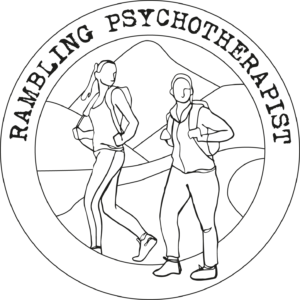 Let’s talk self-care…
Let’s talk self-care…
Self-care has been a hot topic for me, for quite some time now. It’s prominent for me personally and is deeply embedded in my work. Allowing time and space for self care is probably the biggest obstacle the majority of my clients face in getting to where they want to be.
It’s important and often difficult sh*t!
When we embrace a life that involves recognising that we are as important as any other person on the planet, and that we might need to do some looking after ourselves too, our experiences generally change – for the better!
It could just be the way that I have trained the various algorithms to provide me with material I am interested in but, the world at large also seems to be a bit obsessed self-care too. Everywhere I look in the media, there is some expert or other telling me I should move a certain way, eat a certain way, breathe a certain way, or generally exist in a certain way in order to avoid some terrible fate which is heading towards me unless I change my unhealthy ways and start ‘living my best life’ in the particular way that they suggest.
But, the vast array of information out there is overwhelming and full of conflicting information. One person will tell you the key to happiness is in cold water therapy, another will contradict this by being certain that you need to embrace hygge and life should be all about being warm and cosy.
There’s also a lot of misinformation out there too. So many times, I have seen mindfulness or yoga being sold as if they are a magic pill you can take in order to live a life of utter bliss, and yet both of these practices aim to support us to be fully embodied and able to more easily experience the full array of what life has to offer us, including discomfort (of any kind).
And, don’t even get me started on the people that tell you you can ‘fix’ your emotional state just by tackling what happens in the mind, or alternatively the body. Humans are whole beings, every part of the system has an impact on the others. In order to achieve health, you must address the whole!
So, if you are starting out on the pathway of creating some change in your life, you can be forgiven for giving it a go and then, after a while, deciding maybe this is not for you, it’s too complicated and it doesn’t seem to be working.
I urge you not to give up. The truth is, the things which will actually nourish and support you may look very different to the things which will benefit someone else, so it is rare that you can just copy what someone else is doing and get the same benefits. There will always be a little bit of experimentation and trial and error involved in working out what particular recipe of self-care works best for you.
When I’m working with clients, I use a strategic approach to implementing a new, more self-caring way of being in the world. We follow several foundation steps in order to accurately get the lay of the land, before we even start trying out new strategies…
Initially I always urge people to spend some time actually monitoring what is currently happening for them. This way we get a much clearer picture of what the baseline, which we are trying to change, is. Journaling, keeping a symptom diary, tracking and recording your mood throughout the day etc, will all give you some solid evidence of the current status quo, against which you can track your progress.
Alongside this, we spend time getting to know the nervous system and the physical symptoms we can observe in ourselves, which let us know if we are venturing into fight/flight territory. People don’t realise, that when you make changes to the way you have always done things, you risk freaking out your nervous system a little, because it has a firmly registered map of what is safe and what isn’t and anything new has the potential to represent a threat. If you can recognise the, sometimes tiny, nervous system shifts as they are happening and take steps to quieten an alarm before it gets too loud, you stand a much better chance of being successful in your quest for positive change.
And the final, most important, foundation step is learning to tune back in to what your body is telling you. Your body knows things that your mind cannot comprehend unless you are actually paying attention to it. We live in a world which provides us with infinite distractions for our minds, so the vast majority of people are to some degree, numbed out. Tuning back in, may seem at first like it is a recipe for increasing your discomfort but if you persevere, your efforts will pay dividends in the long run, because it is your body which will let you know what is working and what isn’t.
Once we have taken a few weeks to go through these steps, we then start taking some small steps towards integrating new strategies which feel like they will be supportive for you. We introduce one thing at a time, and we track the results. This allows us to do an accurate comparison to the baseline and work out whether the new strategies are having a supportive impact.
Sometimes, desperation to be rid of discomfort drives people to go hell for leather at something, but generally slow and steady wins the day.
I hope this has been helpful. If you have any questions, just get in touch.
Warmly
Rachel
P.s. If you’re thinking about getting on top of this self-care thing and would like a bit of structure to help you put it in place, check out the Take Root programme. The beta round is opening for registration on the 21st June. Get the registration link by joining the waiting list.

Leave a Reply
Want to join the discussion?Feel free to contribute!